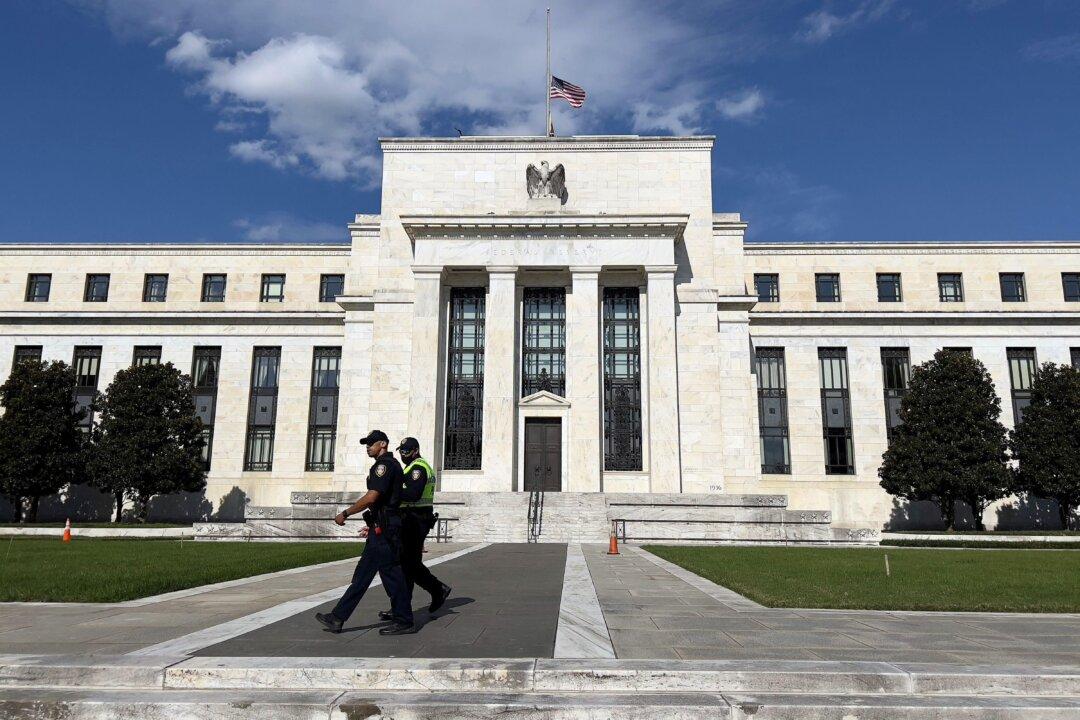Goldman Sachs strategists predicted in a Nov. 25 note that hotter-than-expected inflation will push the Federal Reserve to accelerate the pace of phasing out its massive bond-buying program in a bid to ease price pressures.
At their most recent policy meeting in early November, Fed officials said they would start dialing back the central bank’s monthly purchases of Treasury and mortgage-backed securities by $15 billion per month, which would bring them down to zero over eight months, with the so-called “taper” concluding in June. At the same time, Fed policymakers left the door open to a faster taper in the event of signs that higher inflation were to become a more permanent fixture of American life.





